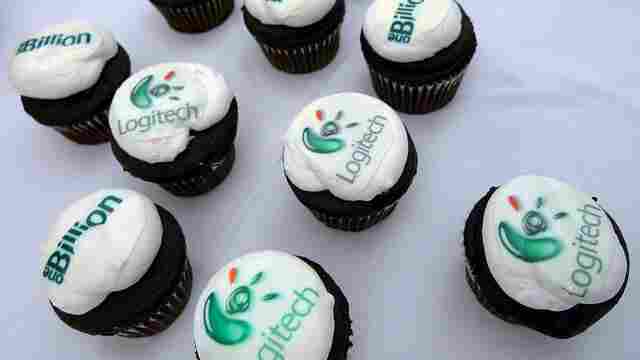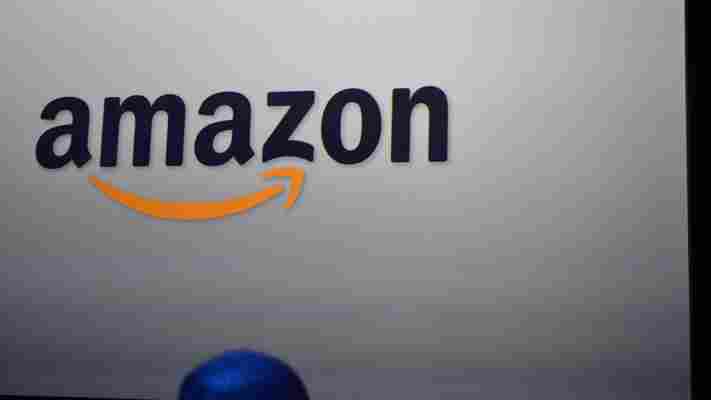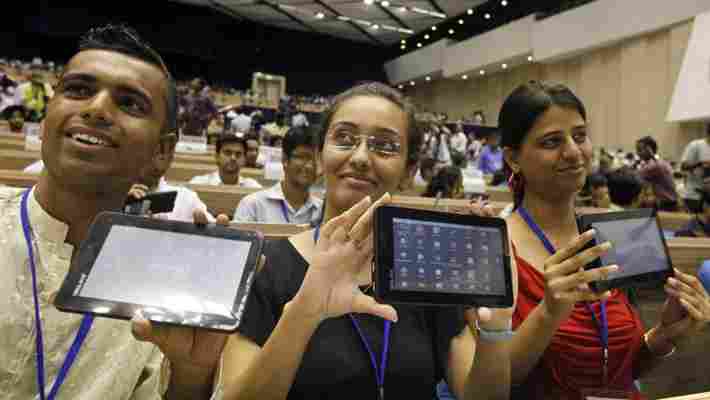Logitech today unveiled the latest in its solar-powered accessory range, launching the Solar Keyboard Folio to provide new iPad and iPad 2 owners with a slim and robust Bluetooth keyboard that draws its power from light, but also doubles as a protective case.

The Solar Keyboard Folio has been adapted from Logitech’s Mac and PC solar keyboards to operate seamlessly with second and third-generation iPads, utilising on-board solar cells to charge the Bluetooth keyboard in any light.
Logitech boasts that the keyboard can last for up to two years when fully charged (based on use of two hours a day), adding that it has designed the accessory to stand in two positions (both landscape).
The first allows full use of the keyboard, while the other positions it in a way that covers all but the first row, “acting as your one-touch media playback and volume controls, so you can play, pause and change volume instantly.”
As with many modern iPad covers, the Solar Keyboard Folio comes with a magnetised panel, waking up and putting your iPad to sleep when you open and close it.
The Logitech Solar Keyboard Folio is set to go on sale in the U.S. and Europe later in May, at a cost of around $129.99. You can preorder it here .
A best-seller sells out: Amazon pulls Kindle Fire sales ahead of September 6 tablet refresh
With its September 6 event circled on its calendar in big red ink, Amazon has announced today that its Kindle Fire tablet is “Sold Out,” pulling the tablet from sale as it looks to its “exciting roadmap ahead.”

The announcement all but confirms that Amazon will debut new tablet devices next week, with its founder and CEO Jeff Bezos noting that the company will “offer our customers the best hardware, the best prices, the best customer service, the best cross-platform interoperability, and the best content ecosystem.”
Build that hype Amazon, build that hype.
Amazon says that the Kindle Fire, which went on sale in November 15 in the US only, was its most successful product launch in the history of its US retail website, earning 10,000 5-star reviews. However, the company appears to have let its remaining stock run out and will no longer fulfil orders placed on the site (third-party sellers can still offer the device).
Notorious for keeping sales figures close to its chest, Amazon states that the Kindle Fire has “captured 22% of tablet sales in the US.” The company isn’t really able to back that figure up, all we know is that it was selling over one million Kindles per week over a three week period at the end of last year.
Earlier, the company pushed live its Android Appstore in the UK, Germany, France, Italy and Spain. The Appstore, which is Amazon’s rival to Google’s Play Store, offers customers a vetted marketplace with a Free App of the Day promotion and the company’s GameCircle platform, which offers leaderboards, achievements and game syncing. It’s the first time the store has expanded outside the US.
Rumors have it that Amazon will introduce more than one new tablet in the coming week, maybe even a smartphone. We only have a short wait until we find out.
India’s $45 tablet sold out in a week as pre-orders open for $55 device
India’s government sponsored tablet, the Akash , has sold out less than one week after the device went on sale in the country online.

The tablet, priced at just $45, gained considerable international attention when it was unveiled in October, primarily due its low price point which the Indian government hopes will provide a computing experience to more of the country’s population.
While many will be disappointed by the lack of availability of the tablet — which is believed to have been snapped up by a large number of students — there is positive news. Datawind, the firm which manufactures the Akash, has revealed that it is accepting pre-orders for an upgraded version of the device, as a spokesperson told The Hindu Business Line :
The new tablet is called the UbiSlate 7 and it is set to begin shipping next month for $55 (2,999 INR). Measuring 7 inches, the device packs more punch that the first generation version (the specs of which are here ) making it better suited to use on the go.
Unlike the Akash, the Ubislate 7 supports GPRS and WiFi, allowing the use of a SIM card and access the Internet from any place. Under the hood, it is is powered by Android 2.3, an upgrade on Akash’s 2.2, while its Cortex A8 700 MHz processor is a significant step up on the Akash’s Arm11, 366MHz and it will support HD video playback and provide better performance.
Datawind is placing considerable marketing emphasis on the device’s similarities to a portable computer. To that point, and in addition to its improvements, it is offering a leather keyboard case which will enable users to type using a physical input.
While it is unclear how many devices will be produced, the device will be manufactured by QUAD whose Hyderabad facility is apparently capable of making 1,000 devices per day.
More details about the Ubislate 7 can be found on its website , where pre-orders for the device are being accepted.
